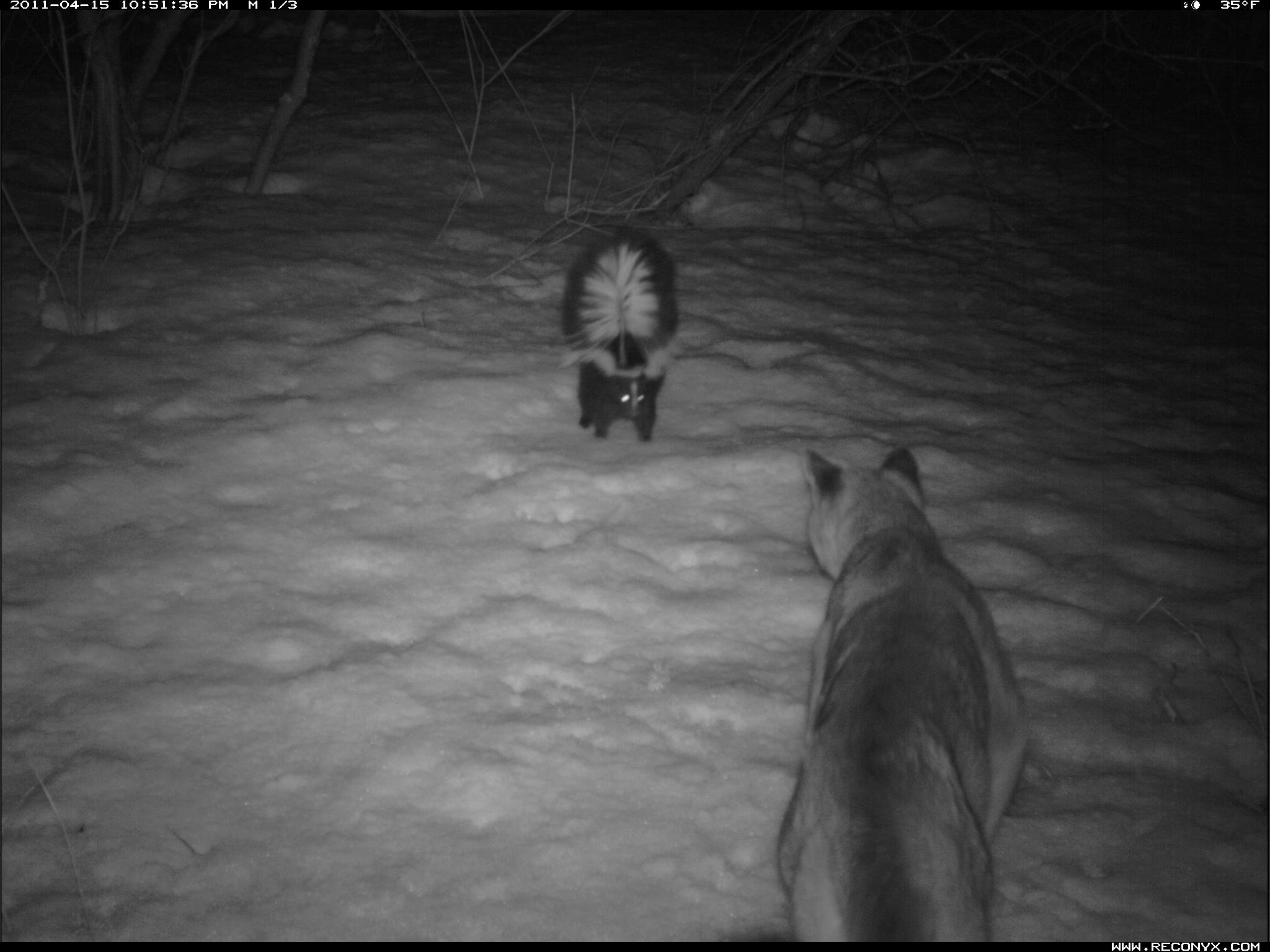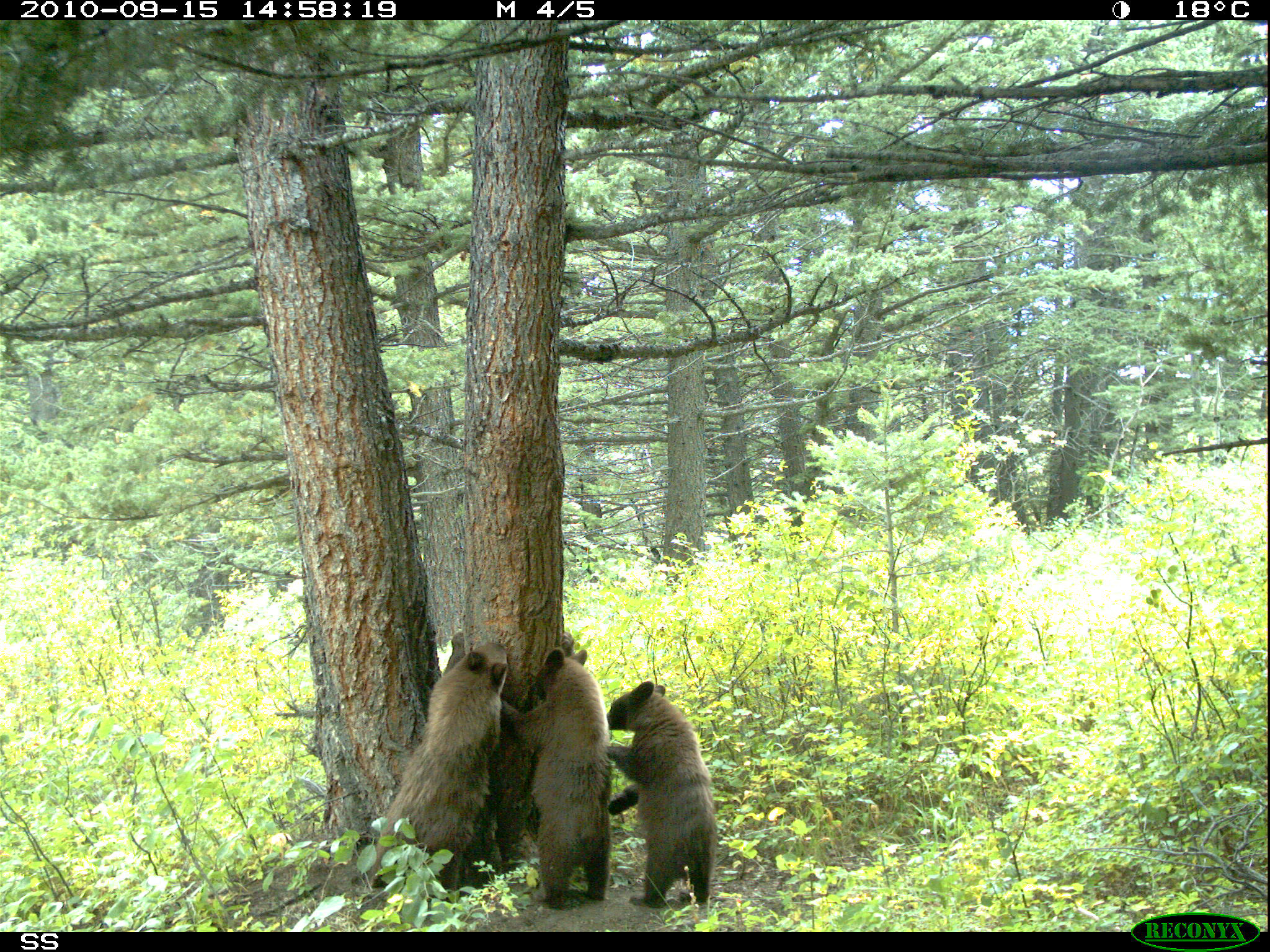
Skunk Scares Off Cougar in Camera Trap Photo

A skunk-versus-cougar face-off was caught on film by a camera trap in Waterton Lakes National Park, Alberta, Canada.
"The cougar was looking at the skunk like it might be lunch, and the skunk was looking at cougar like 'you're going to regret this decision,'" said Dennis Madsen, resource conservation manager for the park, who helps manage the hidden cameras. "The cougar chose the path of wisdom and decided to go elsewhere," Madsen told OurAmazingPlanet.
The unusual encounter, snapped in March, is one of thousands of camera trap images that reveal the hidden lives of animals in Waterton Lakes. [See the camera trap images.]
The automatic cameras were first installed to help park managers oversee human activity in the park's 195 square miles (505 square kilometers) of rugged trails and wilderness. But officials soon realized the photos gave them a unique glimpse into the private lives of the park's shy and secretive animals, such as cougars (also known as mountain lions), lynx and wolverines. Before the "critter cams" were installed, staff members weren't sure if lynx roamed the park, Madsen said. "An animal like lynx is almost never seen in the park, but once we started putting out cameras for wildlife a couple years ago, lo and behold we were seeing lynx on camera," he said.

Between 40 to 50 cameras now monitor wildlife trails, natural mineral licks and grizzly bear rubbing trees throughout Waterton Lakes, a World Biosphere Reserve that shares a border with Glacier National Park in Montana. The rubbing trees, where bears scratch their backs and mark their territory, seem equivalent to a notice board at the community grocery store. "You see a whole host of animals swing by to see who is in the neighborhood," Madsen said.
Because the camera traps snap images every few minutes, park managers have seen hikers saunter down the trail just before or after big animals, Madsen said. "From the look on their faces, they had no idea two minutes before there was a cougar or bear standing there," he said.
Any pictures of people are held for six months, then deleted, Madsen said.
Sign up for the Live Science daily newsletter now
Get the world’s most fascinating discoveries delivered straight to your inbox.
Waterton Lakes is participating in a recently launched national study using camera trap images to study population trends in park wildlife. "We're already learning things from the images; now we're trying to be a little scientific about it," Madsen said.
Reach Becky Oskin at boskin@techmedianetwork.com. Follow her on Twitter @beckyoskin. Follow OurAmazingPlanet on Twitter @OAPlanet. We're also on Facebook and Google+.










